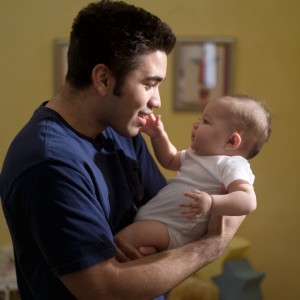 In custody litigation the court must determine which parent would be better at taking care of the best interests of the child or children. Best interests of the child or children involves which parent can provide a life situation where the child will thrive and grow emotionally, intellectually, spiritually and physically. The large majority of custody issues are resolved out of court in custody agreements between the parties. However a small number of custody matters require a judge to make a decision as to which parent would be better suited to being the residential custodial parent of the child.
In custody litigation the court must determine which parent would be better at taking care of the best interests of the child or children. Best interests of the child or children involves which parent can provide a life situation where the child will thrive and grow emotionally, intellectually, spiritually and physically. The large majority of custody issues are resolved out of court in custody agreements between the parties. However a small number of custody matters require a judge to make a decision as to which parent would be better suited to being the residential custodial parent of the child.
Preparing for Custody Litigation
Each litigant in a custody case will seek to prove it is in the child’s best interest for the child to reside with them. In order to accomplish this goal, a litigant in a custody case should obtain documentation supporting his or her claims. This documentation should show the involvement of that parent in the child’s medical needs, school, work, after school activities, family and social events, and other issues which would lead a judge to believe that parent was the primary, caring individual involved with raising the child and promoting the child’s best interests. A parent seeking custody should show his or her residence provides appropriate accommodations for the child, is within a reasonable distance of the child’s school, and the living environment the child would be exposed to is conducive to raising a child. Photographs of the place the child will live, his room, the accommodations of the home should be available to present to the court.
Who The Child Seeks to Live With
In the State of New York, in custody battles, an attorney is appointed to represent the child. The attorney for the child is supposed to meet with the child and take into consideration the child’s desires as to who he or she would seek to live with. It is this author’s opinion the child’s position as to who should be the residential custodial parent should only be considered with mature children. Unfortunately, this is not the law in New York. I have had numerous cases where attorneys for a child have come into court and advised the court who the 4 or 5 year old they interviewed would seek to live with. 4, 5, 6, 7 and 8 year olds often change their minds, sometimes 3 or 4 times during a 15 minute span.
Support System
Parents seeking custody of a child should be able to make a presentation to the court who will be taking care of the child, supervising the child, and meeting the child’s needs 7 days a week. If the parent works, he or she must present to the court a support system which would nurture the child, protect the child, and properly supervise the child when that parent is unavailable due to employment or other reasons.
The More Available Parent
Some parents have employment situations which are more flexible than others. The parent with the more flexible position can make a presentation to the judge that he or she would be available to be there for the child during school programs, after school activities, and help with homework. Judges do take a parent’s availability to nurture a child into consideration when custody issues are presented to them.
Elliot Schlissel is a father’s rights lawyer practicing law within the Metropolitan New York area for more than 35 years.







 There was litigation in the Family Court between a father and a mother. The father alleged the mother had acted in an obstreperous manner, had interfered with his visitation with the parties’ children in violation of court orders and had created a situation which made it extremely difficult for the father to have visitation. The father claimed the mother’s disruptive, antagonistic behavior was not in the children’s best interest and was having a negative impact on the parties’ child.
There was litigation in the Family Court between a father and a mother. The father alleged the mother had acted in an obstreperous manner, had interfered with his visitation with the parties’ children in violation of court orders and had created a situation which made it extremely difficult for the father to have visitation. The father claimed the mother’s disruptive, antagonistic behavior was not in the children’s best interest and was having a negative impact on the parties’ child.






